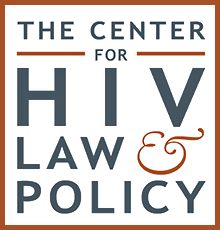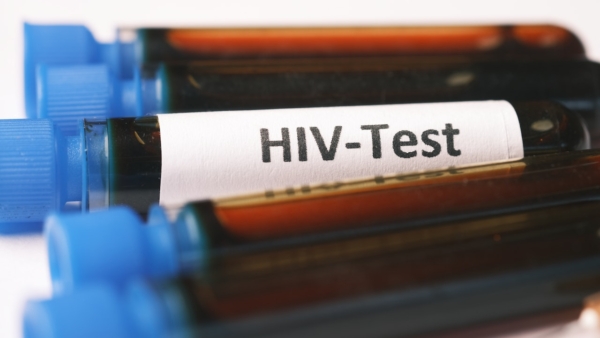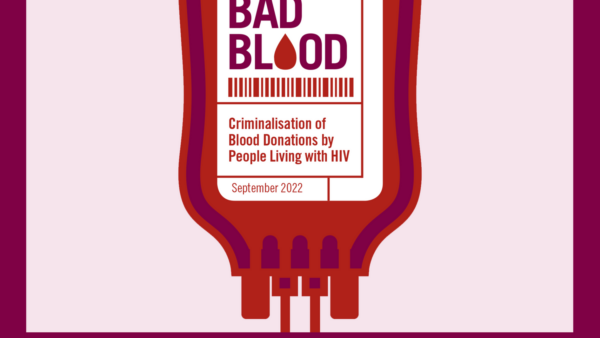Overview
Georgia adopted HIV-specific criminal laws in 1988 that criminalised non-disclosure in multiple contexts including sexual intercourse, sex work, needle-sharing and blood donations. It also criminalised perceived HIV ‘exposure’ against law enforcement through bodily fluids. In 2022, Georgia’s laws were reformed, significantly reducing the scope of HIV criminalisation in the state.
A provision criminalising ‘reckless conduct’ made it an offence for people living with HIV to engage in certain activities without prior disclosure of their status. This covered sexual activity including vaginal, anal, or oral sex, offering or consenting to sex for money or soliciting for ‘sodomy’ (regardless of whether sex takes place), sharing of needles or syringes they had previously used, and donating blood, fluids, or body parts. This provision was a felony offence carrying a sentence of up to ten years’ imprisonment. In all cases, neither intent or actual transmission were required for this offence, and there were no defences for condom use or low viral load.
The same provision made it an offence for a person living with HIV (or hepatitis) to commit an ‘assault’ on a peace or correctional officer in the performance of their duties using their bodily fluids with intent to transmit. This provision was a felony and carried a penalty of five to 20 years’ imprisonment. The offence criminalised spitting which carries no risk of HIV transmission and biting, where the risk is infinitesimally low.
A 2018 analysis of HIV criminalisation cases by the Williams Institute demonstrated the scale of criminalisation in the state. It found that there were 571 HIV-related arrests involving 543 people from 1988 to September 2017, though there was virtually no enforcement of the law before 1997. Just 13% of arrests resulted in conviction for an HIV-related offence. In terms of demographics, the report showed that 63% of those arrested were Black, which was roughly proportionate to the number of Black people living with HIV in the state.
Against this backdrop of significant enforcement of the law, local stakeholders began to organise to advocate for ‘modernisation’ of the law. The Georgia HIV Justice Coalition was officially formed in 2016, building on work which began in 2013, with the goal of spearheading a campaign to ‘decriminalise HIV’. Working closely with established organisations such as Georgia Equality, the Coalition was successful in getting this issue on the legislative agenda. The year 2020 saw the first attempt to reform the law in the legislature, with the Georgia House passing a bill to ‘modernise’ the law, however this was not passed by the Senate during the same legislative session, which was interrupted by the COVID-19 pandemic. In 2021, however, a second attempt to pass a modernising bill was successful, with Senate Bill 164 receiving overwhelming bi-partisan support in both houses. The Bill was signed into law in May 2022, finalising the ‘modernisation’ of Georgia’s HIV law.
This law made a number of significant changes which dramatically reduced the scope of HIV criminalisation in Georgia. Firstly, the elements of the non-disclosure provision which criminalised soliciting ‘sodomy’, needle/syringe sharing, and donation of blood, fluids, or body parts were all repealed, as was the ‘assault by bodily fluids’ provision. This leaves only the elements of the non-disclosure provision covering sexual activity and offering or consenting to sex work, but prosecutors must now prove both an intention to transmit and a ‘significant risk of transmission’, based on current scientific evidence. Although advocates had pushed for the remaining offences to be downgraded to misdemeanour, the felony level was retained, but the penalty was lowered to a maximum of five years’ imprisonment.
Georgia’s law is now much closer to international guidelines which call for criminalisation to be limited to cases of intentional and actual transmission, and this should result in dramatically lower conviction rates. However, it is important to note that the law still does not require transmission to take place, merely that it was a significant possibility, which leaves some scope for further improvements in the law.
The first case of HIV ‘exposure’ to be reported following the 2022 reforms related to a December 2022 arrest of a woman living with HIV, who allegedly spat on the arm of a police officer during the arrest. The media report suggested the woman had been charged with the ‘conduct of an HIV infected person’ offence, however the element of that offence concerning spitting is no longer in force. It is not clear whether this was an error in reporting or on the part of the police during charging, or whether the charge came under the general part of the offence which applies to anyone who ‘endangers the bodily safety of another person’, which is not specific to people living with HIV.
A subsequent case reported in July 2023, however, is an example of enforcement of the reformed law for alleged HIV transmission. In this case, a man living with HIV was arrested after allegedly failing to disclose his status to a partner who later contracted HIV. The woman lived with undiagnosed HIV for at least five years, before ultimately dying of an AIDS-related illness in 2022. The man was also accused of having unprotected sex with two other woman in 2023. He was charged with three counts of ‘Conduct by HIV Infected Persons’, each carrying a penalty of up to five years’ imprisonment, with the District Attorney’s Office noting that it would seek a felony murder charge for the death of the first partner. Notably, although the law now requires an intent to transmit, the case report does not suggest that the man wanted his partners to contract HIV. The case continued as of May 2025, when the accused pleaded not guilty.
The 2022 reform did not remove the possibility of people living with HIV being prosecuted under general criminal provisions. People have been convicted for aggravated assault on the basis of an alleged intent to murder, rape, or rob, or the use of a deadly weapon or object likely to cause serious bodily injury, arising from their HIV status. This has included convictions for conduct which carries little to no risk of transmission such as spitting and biting (see CHLP report below).
Furthermore, under state health laws people living with HIV may be compelled to submit to an HIV test, treatment, or isolation.
For a detailed analysis of HIV criminalisation in Georgia, as well as all other US states, see the Center for HIV Law and Policy report, HIV Criminalisation in the United States: a Sourcebook on State and Federal HIV Criminal Law and Practice.
Laws
Georgia Code § 16-5-60
Conduct by HIV Infected Persons
(…)
b. A person who causes bodily harm to or endangers the bodily safety of another person by consciously disregarding a substantial and unjustifiable risk that his or her act or omission will cause harm or endanger the safety of the other person and the disregard constitutes a gross deviation from the standard of care which a reasonable person would exercise in the situation is guilty of a misdemeanor.
c. A person living with HIV who:
1. Knowingly engages in a sexual act with the intent to transmit HIV and does not disclose his or her status as being a person living with HIV to the other person prior to that sexual act, when such act has a significant risk of transmission based on currently scientifically supported levels of risk of transmission; provided, however, that this paragraph shall not apply to a person living with HIV who is forced into a sexual act against his or her will; or
2. Offers or consents to perform with another person a sexual act for money with the intent to transmit HIV without disclosing his or her status as being a person living with HIV to that other person prior to offering or consenting to perform the sexual act when such act has a significant risk of transmission based on currently scientifically supported levels of risk of transmission
is guilty of a felony and, upon conviction thereof, shall be punished by imprisonment for not more than five years.
Georgia Code § 16-5-60
Conduct by HIV Infected Persons; Assault by Hiv Infected Persons or Hepatitis Infected Persons
(…)
c. A person who is an HIV infected person who, after obtaining knowledge of being infected with HIV:
1. Knowingly engages in sexual intercourse or performs or submits to any sexual act involving the sex organs of one person and the mouth or anus of another person and the HIV infected person does not disclose to the other person the fact of that infected person’s being an HIV infected person prior to that intercourse or sexual act;
2. Knowingly allows another person to use a hypodermic needle, syringe, or both for the introduction of drugs or any other substance into or for the withdrawal of body fluids from the other person’s body and the needle or syringe so used had been previously used by the HIV infected person for the introduction of drugs or any other substance into or for the withdrawal of body fluids from the HIV infected person’s body and where that infected person does not disclose to the other person the fact of that infected person’s being an HIV infected person prior to such use;
3. Offers or consents to perform with another person an act of sexual intercourse for money without disclosing to that other person the fact of that infected person’s being an HIV infected person prior to offering or consenting to perform that act of sexual intercourse;
4. Solicits another person to perform or submit to an act of sodomy for money without disclosing to that other person the fact of that infected person’s being an HIV infected person prior to soliciting that act of sodomy; or
5. Donates blood, blood products, other body fluids, or any body organ or body part without previously disclosing the fact of that infected person’s being an HIV infected person to the person drawing the blood or blood products or the person or entity collecting or storing the other body fluids, body organ, or body part,
is guilty of a felony and, upon conviction thereof, shall be punished by imprisonment for not more than ten years.
Georgia Code § 16-5-21
Aggravated assault
a. A person commits the offense of aggravated assault when he or she assaults:
1. With intent to murder, to rape, or to rob;
2. With a deadly weapon or with any object, device, or instrument which, when used offensively against a person, is likely to or actually does result in serious bodily injury; (…)
b. Except as provided in subsections (c) through (k) of this Code section, a person convicted of the offense of aggravated assault shall be punished by imprisonment for not less than one nor more than 20 years.
Further resources
Not all laws used to prosecute people living with HIV in this state are included on this page. For a comprehensive overview and analysis of HIV-related criminal and similar laws and policies, visit The Center for HIV Law and Policy
This report provides an overview of the use and enforcement of HIV-related laws in Georgia. Preliminary analyses show some disparities based on race, sex, geography, and underlying related offenses.











